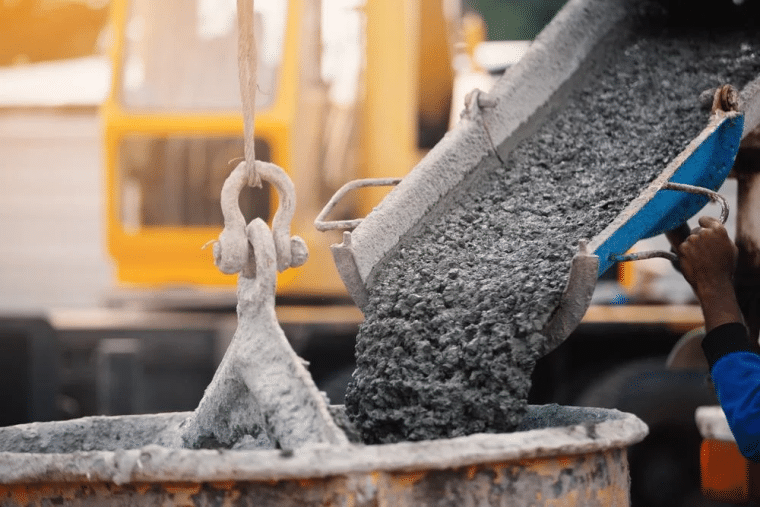
Cement is the second most widely used material on Earth, but its industry accounts for about 8% of the planet-warming carbon dioxide emissions.
To address the concrete carbon problem, researchers and startups working on environmentally friendly products have devised a solution that involves infusing regular cement with biochar.
Researchers Develop Carbon-Negative Concrete
Despite being one of the most important building materials, concrete is a significant carbon emitter in the construction sector, contributing between 5% and 8% of the world’s anthropogenic greenhouse gas emissions.
Although the green ecosystem community’s collective gnashing of teeth at its use, concrete is used in the most sustainable buildings for foundations and other structural components.
In January, New Jersey became the first state in the United States to pass legislation encouraging the use of low-carbon concrete through company tax credits, indicating that people were becoming more aware of the carbon issue with concrete.
Recently, two Washington State University (WSU) researchers developed a technique that could create carbon-negative concrete, environmentally benign concrete, and nearly as durable as regular concrete.
In a proof-of-concept experiment, the researchers mixed conventional cement with eco-friendly biochar, a form of charcoal derived from organic waste that had previously been reinforced with concrete wastewater.
Humans have long been familiar with the substance known as biochar. As a soil additive to enhance soil health, it has recently gained popularity among farmers and gardeners.
It also absorbs carbon from the air and organic matter.
To create biochar today, waste products like rice husks, wood chips, or water-treatment sludge are heated at high temperatures in a low-oxygen atmosphere.
The biochar was still able to match the strength of regular cement even after absorbing up to 23% of its weight in carbon dioxide from the atmosphere.
“With this, we should be able to assist in the built environment being carbon neutral,” says Xiangming Shi, a professor of civil and environmental engineering at WSU who’s leading the research.
In a report published in the journal Materials Letters, Shi and his graduate student Zhipeng Li described their plan.
The researchers have been collaborating with the Office of Commercialization to safeguard the intellectual property to commercialize this technology.
They have also submitted a provisional patent application for their work on carbon-negative concrete.
Additionally, the researchers obtained a seed grant from the Washington Research Foundation to produce more data for other use cases.
They are actively seeking partners in the building and construction industries to assist in scaling up production for field trials and licensing this WSU technology.
Other Startups Working to Reduce Concrete Carbon Emissions
As the world races towards a more sustainable environment, several eco-friendly startups are also springing up to limit the effects of carbon emissions.
A startup company named CarbiCrete is in the race to develop carbon-negative concrete.
Dr. Mehrdad Mahoutian and Chris Stern, both graduates of McGill University in Montreal, founded the company.
The startup received $17.3 million (23.5 million CAD) in Series A funding early last year.
Instead of cement, the company mixes its concrete with scrap slag from steelmaking and cures it with carbon dioxide from industrial facilities.
However, one significant disadvantage is that the concrete cannot be poured and hardened on-site; it must be prefabricated.
Aside from Carbicrete, another company is working to create carbon-negative concrete.
CEO Cody Finke and his team at the California-based startup Brimstone in Oakland have discovered an innovative solution – the world’s first carbon-negative cement manufactured from calcium silicate rocks.
According to Finke, calcium silicate rocks are 200 times more common than limestone, typically used to make cement.
Brimstone is seeking to rapidly scale up its innovation with the assistance of significant backers such as Amazon’s Climate Pledge and Bill Gates’ Breakthrough Energy Ventures.
The company also claims it will be less expensive and as dependable as traditional cement.
What's the Best Crypto to Buy Now?
- B2C Listed the Top Rated Cryptocurrencies for 2023
- Get Early Access to Presales & Private Sales
- KYC Verified & Audited, Public Teams
- Most Voted for Tokens on CoinSniper
- Upcoming Listings on Exchanges, NFT Drops